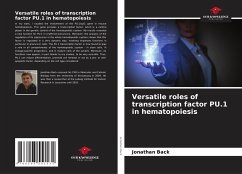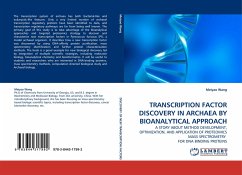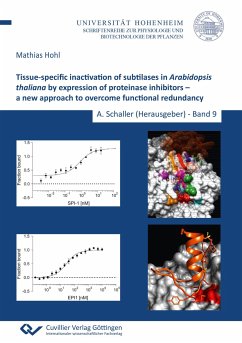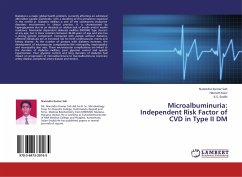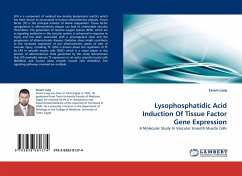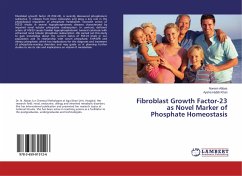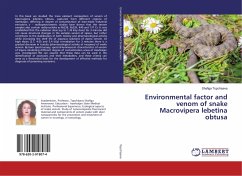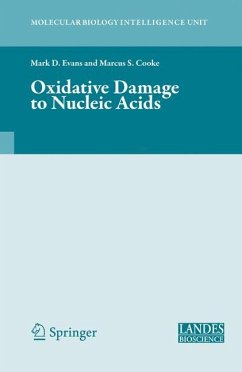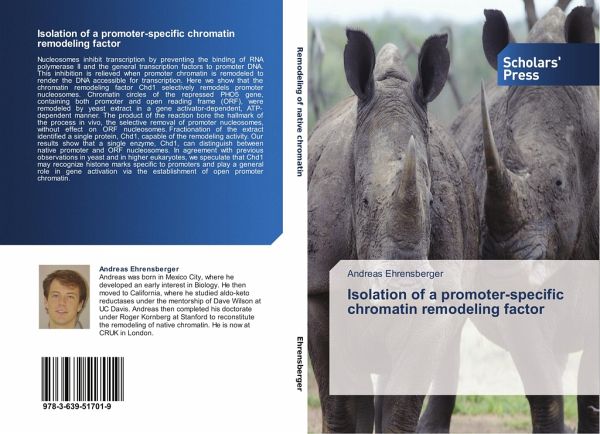
Isolation of a promoter-specific chromatin remodeling factor
Versandkostenfrei!
Versandfertig in 6-10 Tagen
45,99 €
inkl. MwSt.

PAYBACK Punkte
23 °P sammeln!
Nucleosomes inhibit transcription by preventing the binding of RNA polymerase II and the general transcription factors to promoter DNA. This inhibition is relieved when promoter chromatin is remodeled to render the DNA accessible for transcription. Here we show that the chromatin remodeling factor Chd1 selectively remodels promoter nucleosomes. Chromatin circles of the repressed PHO5 gene, containing both promoter and open reading frame (ORF), were remodeled by yeast extract in a gene activator-dependent, ATP-dependent manner. The product of the reaction bore the hallmark of the process in viv...
Nucleosomes inhibit transcription by preventing the binding of RNA polymerase II and the general transcription factors to promoter DNA. This inhibition is relieved when promoter chromatin is remodeled to render the DNA accessible for transcription. Here we show that the chromatin remodeling factor Chd1 selectively remodels promoter nucleosomes. Chromatin circles of the repressed PHO5 gene, containing both promoter and open reading frame (ORF), were remodeled by yeast extract in a gene activator-dependent, ATP-dependent manner. The product of the reaction bore the hallmark of the process in vivo, the selective removal of promoter nucleosomes, without effect on ORF nucleosomes. Fractionation of the extract identified a single protein, Chd1, capable of the remodeling activity. Our results show that a single enzyme, Chd1, can distinguish between native promoter and ORF nucleosomes. In agreement with previous observations in yeast and in higher eukaryotes, we speculate that Chd1 may recognize histone marks specific to promoters and play a general role in gene activation via the establishment of open promoter chromatin.





